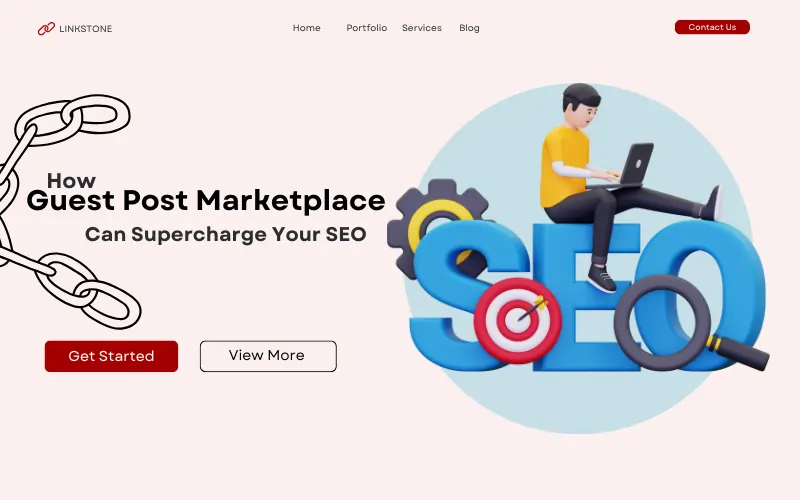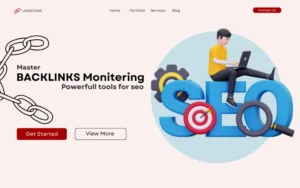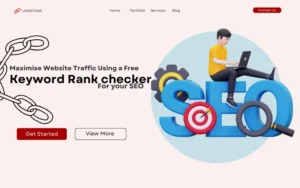Guest post marketplaces are platforms where you can buy or sell guest post opportunities, making link building and brand promotion much easier. These sites connect publishers with marketers who want high-quality backlinks and exposure, offering a ready list of websites that accept guest posts. Most marketplaces handle research, vetting, and communication, saving you time and reducing risks. Many also provide tools to track your orders and measure results, making them a complete solution for your outreach needs. In this guide, we’ll explore the best marketplaces, how to choose one, and tips to succeed, so you can make the most of your guest posting efforts.
Why Reliable Guest Post Marketplaces Matter
When done right, guest posting builds your site’s reputation and helps with search engine rankings. But not all platforms are trustworthy. A good marketplace shows real site data, often includes content help, and balances price with quality. This way, you avoid link farms and low-value placements.
How Platforms Vet Websites
The best Guest Post marketplaces only accept trusted, high-quality sites. Some check site traffic and design, or use manual reviews to weed out spam. They may analyse domain authority, review backlink profiles, and remove sites that link to shady content. This protects your SEO efforts from penalties.
Top Guest Post Marketplaces You Can Trust
Serpzilla
Serpzilla offers over 45,000 vetted sites. You can filter by domain authority, traffic, niche, and location to find a perfect match. They also provide in-depth analytics and easy campaign tracking. It’s like having a guest post assistant that shows you the stats upfront.
Accessily
Accessily feels a bit like a social network where publishers and buyers can communicate directly. This makes it easier to negotiate terms and discuss content before ordering. It’s helpful if you want a personal touch.
Authority Builders
Authority Builders focuses on high-authority websites and promises replacements or refunds if links disappear within a year. They check traffic, relevance, and make sure guest posts are top quality. Ideal for those who want long-term results.
LinkBuilder.io
LinkBuilder.io works using manual outreach. Their team contacts bloggers personally, makes sure the content fits, and places your links. If you want hands-off convenience with a human touch, this one’s greatthough it costs more.
GetMeLinks
GetMeLinks lets you choose things like URL, anchor text, and target traffic levels. If you spend over $1,500 in one go, they’ll help you pick URLs and text for free. Their team personally reaches out to sites to get placements all tracked in a detailed report.
Loganix
Loganix is known for super-safe links. If a placement doesn’t work out, they replace it. It’s a more expensive choice, but if you want peace of mind, Loganix delivers.
FatJoe
FatJoe gets great reviews and guarantees niche fit. They source real blogs, write helpful articles, and ensure your link looks natural in the content. If your goal is quality and ease, this one’s popular for a reason.
Adsy
Adsy is flexible: you can buy and place content or just order content. All their sites have good authority, and it’s hands-off if that’s what you’re after.
PressWhizz
PressWhizz has over 25,000 vetted sites from around the world. They offer detailed metrics so you can choose confidently. If your links vanish within a year, they’ll restore them. And most links go live within a day!
SerpTrust
SerpTrust focuses on affordable, high-quality guest posts. They filter out low-value sites and aim to keep prices low. This makes them good for budget-conscious users who still want quality.
VefoGix
VefoGix lets you buy or sell guest posts. You can filter by domain authority, traffic, and price. They also work with webmasters from top platforms like Semrush and Ahrefs to keep quality high.
How to Pick the Right Marketplace for You
- Know your goal: Be clear about what you want from guest posting, whether it’s more exposure, better authority, or a boost in SEO rankings. Your goal will guide your choice of marketplace and the type of sites you target.
- Check site quality: Look at traffic numbers, the design, and the overall reputation of the site. Avoid spammy “write-for-us” sites with low trust scores, as these can harm your SEO.
- Watch price vs. value: Higher prices often mean better quality, but always weigh what you’re getting for the money. Consider metrics like DA, traffic, and relevance before deciding.
- Check support and policies: See if they replace bad links or offer fair refunds. A responsive support team can save you trouble if something goes wrong.
- Try small first: Start with one or two placements to test quality before investing more. This lets you judge results without risking your whole budget.
Smart Tips to Avoid Guest Posting Mistakes
- Skip overused “write-for-us” pages: These often have low-quality links that won’t help your SEO much. Focus on unique, reputable sites.
- Don’t trust unchecked lists: Reliable platforms allow you to review and approve sites before purchasing a placement.
- Ask for analytics or metrics: This ensures the site has real traffic and offers genuine value for your link.
- Write or request quality content: Good content performs better than generic or spun articles, bringing more value to your investment.
- Track your placements: Regularly check if your links are live and performing as expected so you can act quickly if issues arise.
FAQs
Q: How much does a guest post cost?
A: Prices vary widely from around $80 for low DA sites to over $500 on high-authority platforms.
Q: Can guest posts disappear?
A: Yes, links can be removed by site owners. That’s why many platforms offer replacements or refunds.
Q: Is higher DA always better?
A: Not always. A relevant, lower-DA site with real traffic can be more valuable than a high-DA site with no visitors.
Q: Do I need to write the post myself?
A: Some platforms write it for you; others let you submit your own. You’ll get better results if the post is helpful and matches the site’s tone.
Final Thoughts
Guest post marketplaces are powerful tools, but only when used wisely. Pick platforms with transparency, quality filters, and solid support. Start small, learn what works, and scale up carefully. Do it this way, and you’ll build backlinks that help your site grow, not hurt it.






